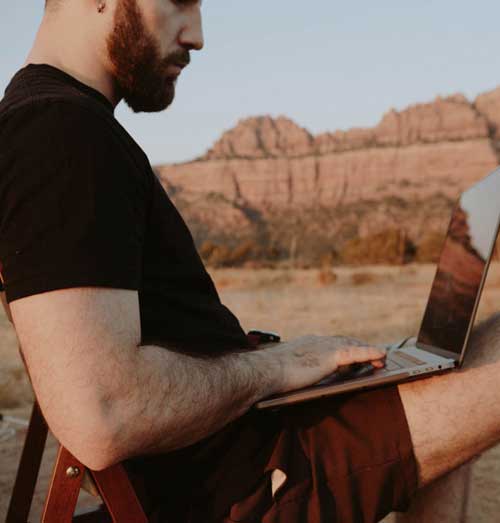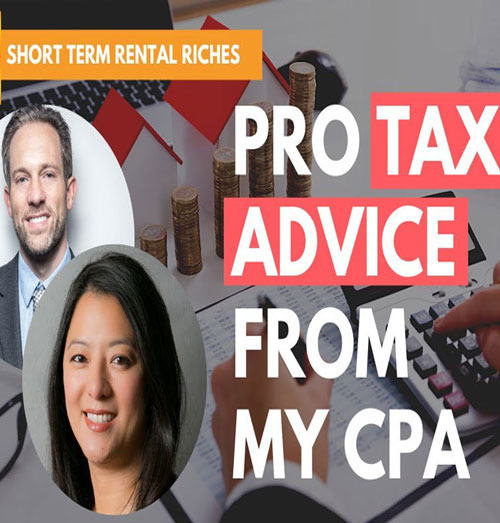How to build an Airbnb Business: Unraveling Decades of experience with Steve Trover
Imagine getting started in the short-term rental industry over 26 years ago.
Yeah, way before Airbnb even existed. How would you do your research? What tools would you use to help manage and operate?
Things would be much different, wouldn’t they?
Now imagine if you were still working in the industry day in and day out…
Our guest this week is just that person.
Steve Trover experience in the short-term rental world from building a management portfolio of 400 properties, developing new purpose-built STRs, the former president of the most recognized short-term rental conference; the VRMA.
The list goes on…
I had the pleasure of interviewing Steve and am looking forward to sharing some of his expert insights including:
- New Construction and purpose-built STRs
- How access to data has changed but doesn’t tell the whole story
- How to know if you need to hire someone
- What to look for with your first hire
- Why personality tests are crucial for any team member
- Importance of structuring your interviews
- Why the world is our oyster
- Why short-term rentals are here to stay
You can find out more about Steve by visiting his LinkedIn profile and make sure to check out bettertalent.com for your hiring resources specific to the STR industry.
Need help managing your short-term rental and you don’t want to go it alone? Shoot us a message here and we’ll see if we can help.
The dates for our Virtual Event in October are now up! Find out more here
You can find all of our links here including our recommended resources, short-term rental playbook, Instagram, and more!
Click Here to view TranscriptWelcome to short-term rental riches. We’ll discuss investing in real estate but with a specific focus on short-term rentals. Quick, Actionable items to Acquire, Manage and Scale your portfolio. I’m your host Tim Hubbard.
Welcome back to the Short-Term Rental Riches podcast. There’s so many experts out in the field. I’m excited to have another one join us today. Someone with over 26 years of experience in the short-term rental industry. Yes, folks, that was far before Airbnb and those types of sites. So today we have Steve on from Better Talent. Well, that’s his most recent company, but he’s got a whole bunch of experience. Steve, welcome to the show.
Steve: Hey, thanks, Tim. Thanks for having me. Really appreciate it.
Tim: Excited to have you on today and pick your brain a little bit. We try to provide quick, actionable tips on this podcast for anyone in the short-term industry or looking to get their first short term rental or building their short-term rental portfolio and looking for a team, which I know you have a ton of experience when it comes to the team side of things. But before we get into kind of that piece, you want to just give us a quick background?
Steve: Yeah, certainly. So, I started in the STR industry in 97, here in the Orlando area where I’m based. Started a little property management company, a couple of properties and grew that over the course of two decades into 400 properties across four different destinations. So we were here in Orlando, Captiva Island, Florida was one of our locations, San Diego, California, so the La Jolla area, and then Sun Valley, Idaho. And really enjoyed running that business all those years, grew it from just myself to over 100 employees. So scaled it, not rapidly though, very slowly, but surely over the course of those two decades. On top of that, developed a proprietary PMS platform back in the day, believe it or not, there wasn’t a lot of options on the software side today. It seems like there’s almost too many. So, we designed and built one with a developer and then I ultimately became the chief strategy officer of a company called LiveRes as a part-time job while I was running my businesses. And that software is used by a lot of vacation rentals for terminal managers today. And then I’m the former vice president and president over a five-year period of the Vacation Rental Managers Association, took it into Europe during my tenure, spent a lot of time with industry trade associations. And then also had a real estate company. So, we only kind of exclusively sold STRs. We had an interior design company, we would furnish pretty much everything that came into our inventory, whether that was new construction or an existing property. And then ultimately developed a company called Purpose Built Vacation Homes where we would design, spec and build vacation home properties. Really high producers specifically started out here in the Orlando area and started to scale that over time. So, a lot of different aspects of the industry. I absolutely love this industry. I will probably never leave it. Today, I have a company called Better Talent that focuses on helping companies in the space build their teams. Everything from a general manager to housekeepers and maintenance techs, frontline, that type of thing. And we work with over 200 short-term rental companies across the country.
Tim: Yeah. Gosh, awesome. So many ways to go. I think the Purpose-Built short-term rentals is a really interesting subset of the short-term rental world and something that we’re actually seeing quite a lot now as people are kind of living in short-term rentals a lot of times. What led you down that route?
Steve: Absolutely. Really, it was working with builders here in the Orlando area. And here, it’s a pretty unique STR market in Orlando in the sense that a lot of the big box builders, so like your Pulte, Lennar, big scaled home builders would build short-term rental communities here close to Disney. The problem with that is, is they would only listen so much to us professionals on what to build, meaning they take floor plans and maybe add some bedrooms, but not add enough living space. They have big walk-in closets. They’d have things you didn’t need and not things you did need. And so, we would try to influence them over the years, but frankly, it just was challenging because they had a certain box they would work within. And so, my dream was like, hey, I want to really build what the guests really want, what will perform the best for investors. And I think doing that, we need to really have an R&D process. And there wasn’t one in the industry. If you think about every product, in fact, every product we’re in front of our desk right now, there’s an R&D process to it. And there wasn’t an STR. And so, we started doing focus groups, looking at data and really, we actually trademarked the term guest influence design because we really wanted the guests to decide what should be built. And so, we really studied what that was, what performed the best financially, what operated the best, what was easy to maintain and clean, and really design that into the product. The other thing that influenced me was the hotel industry. And if you look at the evolution of hotels, it started out like STR in the sense that there was just all these individually designed hotels. Really wasn’t a lot of structure or R&D around that until Kim’s Wilson came around and started Holiday Inn in the 50s and really structured hotel product. And now today, all hotel products, other than like boutiques, are very structured. And so, I saw that evolution probably going to happen in the industry. And that’s when we trademark purpose-built vacation homes and kind of launched that concept. This is really, we built the first one, believe it or not, at the end of 08, right? When everything fell apart and nobody was building anything, I always seemed to start at the very bottom of something. And that was a good time to do that, even though it didn’t seem like at a time seemed kind of scary, quite frankly. But it worked out really well. The first one we ever built was the top performing at that time rental in the Orlando market. It produced half a million dollars in advanced bookings in the first world existence. So, it was really amazing. It was a nine-bedroom home. And we built a lot of seven, eight, nine, 10, 11, 12, 14-bedroom properties here in Orlando.
Tim: Yeah, that’s awesome. Well, a couple of really important points there. I think one of the things you said is that while you’re doing your R&D, you really figured out who is going to be staying there. And so, that’s really important for all of us out there. We need to know who our guest avatar is and make sure that our property fits for them. So, real important piece of the puzzle there.
Steve: Unequivocally, and we would come up with the different types of avatars, if you will, guest profiles, soccer mom, baby boomer grandma with a bunch of kids and grandkids, that type of thing. And then we actually did focus groups with kids. We brought them in because they were such a big part of obviously the Orlando market. And so, knowing what it is, whether that’s a girlfriend getaway or golfers or whatever it is, understanding the unique needs of those groups and designing that into the product and the service that you provide.
Tim: Yeah. Good stuff, Steve. And I think a lot of this is so much easier to do now than it was back then, too, right? We didn’t have Air DNA and a lot of these other tools.
Steve: Yeah. We were constantly just looking for some type of data that we could make decisions around. A lot of our data was internal. We did work with destination marketing organizations on kind of who was coming to the market, that type of thing. But you didn’t have occupancy and ADR data, to your point. There was no RevPAR information and really didn’t understand demand other than what we saw within our own systems. And so, today, you can make a lot better data-driven decisions on what to build, where to build, how to build it, all those things with the technology that exists. But I will say, I find a lot of people don’t use that for that purpose. And I think there’s a gap there and an opportunity for a lot of people.
Tim: Yeah. No, it’s super important. And it’s so detailed now. I mean, like you mentioned, you guys were building properties, massive properties, 10, 11, 12 bedrooms. But we can go on tools like Air DNA now or a lot of the pricing tools and see what the demand is for these different size properties. And so, really important to take a look at that if anyone’s planning on building from scratch, which I think is exciting.
Steve: What’s interesting about that, though, is it’s really good to look at that data, but also look at what maybe the data doesn’t tell you. And what I mean by that is, for instance, we did a survey of our own customer base. We got 2,000 responses. And we asked them, what’s the bedroom count you’d need for your overarching, your extended family to stay on a vacation home at the time? And 20% of our customer base said that they needed a 9-bedroom or larger. We didn’t even have any. In fact, the market didn’t even have any. And so, that told us, wait, there’s a gap. We can build bigger homes. And that worked really, really well. And those were the top performers for a long time. So, looking at the data is really important, but also what it may not be telling you is important as well.
Tim: Well, a lot of exciting stuff there, a lot of different experience. I think at the end of the day, though, nothing in the short-term rental industry, no short-term rental really functions well unless we have a good hospitality component, right? That’s sort of the name of the game. And so, to have or to offer a really good experience and really good hospitality, we have to have a good team. And you guys know a whole bunch about building teams. We’re going to get into better talent where you’re sort of focused on now. But before we do that, do you have just some tips on, you know, for people out there that are maybe looking to hire a housekeeper or looking to hire a maintenance person, how they might go about evaluating their options?
Steve: Absolutely. You know, when you’re thinking about frontline housekeeping, maintenance techs, inspectors, that type of thing, it’s really important to get a lot of applicant flow. And what I mean by that is a lot of times people will just throw up an ad on Indeed or just do one thing, right? And then they’re like, oh, okay, I’ve got so many to choose from. It requires you to have a strong amount of applicant flow that you have enough to choose from. So, you can find those really kind of diamond in the rough people that are ideal for that particular job. The other thing I recommend and then something that we definitely do with every type of person that we help with hiring on is personality testing. Housekeepers specifically, a lot of times we’ll hire somebody that interviews well as a housekeeper because they’re good at talking. Well, when you’re doing housekeeping, you’re not talking, right? So, it’s really more of a reserve type person that’s more ideal that doesn’t need social interaction. So, if you hire somebody that needs that, that’s good in an interview, they’re probably going to turn. Same thing goes with their behavioral trait as it pertains to being able to do repetitive tasks. Housekeeping, as we know, you clean out once, you got to go back and do it again. And certain people are designed for that and certain people are not. And so even a lot of people think that personality testing is something you might do with like an executive or that type of thing. I completely disagree. In fact, I think the frontline is every bit as important to do that with than all other aspects of the business. And housekeeping is the hardest part of this business. I don’t think that’s shocker to anybody listening, but doing that well makes everything else easier when the guest shows up and the property is cleaned. Even if it’s got a maintenance issue here or there, that can be overlooked with it smells clean, looks clean and is clean. So doing that well is really, really critical. And then maintenance, the same thing. I mean, if finding somebody that is best designed for the role is critical. And a lot of times we just kind of hire whoever comes in and fogs the mirror, so to speak. And we find out that doesn’t work. I’ve been hiring people for 33 years. I did it badly for a long time before I started to really refine how we do it. And the reason why I landed on talent and why we’re addressing that today is I think it’s the hardest part of this business. And I’ve done stuff in tech, I’ve done stuff with development and all those things, those are all, the whole thing is hard. But the people side is the hardest part to get right. But you have to be intentional in how you go about it.
Tim: Yeah, definitely.
I’m excited to say that we just announced the dates for our next virtual event. It’s going to be October 14th. We’re talking about margin mastery, how we can make more money with our properties that we own. And there’s a lot of ways to do that. My team and I have been doing that, perfecting that with our properties and other people’s properties. As you know, we’ve managed tens of thousands of guests. We’re always looking at the latest and greatest tools and we’re using them as well. So, if you’re interested in that, head over to restmethods.com. You’ll see right under events there. We’d love to see you there. It’s going to be jam packed. It comes with tons of our checklists and things like that that we use. And we’re going to go deep into pricing. We’re going to go deep into maintenance. We’re going to talk about VAs and how to hire them and best practices and give you the scripts and just going to be jam packed. So, I hope you can make it. And I love to hear the questions there live as well.
Tim: Well, tell us just a little bit more about better talent, Steve. I think I know a lot of people on this show are probably not at the point where they’re hiring someone full time. And so, they’re maybe looking out, maybe they have one short-term rental right now and they’re not quite at that journey where they’re bringing someone on full time. So, any thoughts on that? And then just, yeah.
Steve: Yeah. One of the things that it’s an exercise I really like to encourage everybody to do that’s early stage like that they’re thinking about, maybe I want to bring on somebody full time, or maybe I just need to hire a housekeeper or maintenance tax. It’s really thinking about the parts of the business that you’d like to do and don’t like to do the things that you’re good at and you’re not good at. And most of us just kind of like don’t put a lot of strategy around that creating an organizational chart, believe it or not, when you’re only by yourself is key. Right now, if you have a STR and you’re pushing it down the channels and you’re doing all the things and you’re providing hospitality to guests, you’re doing marketing, you’re doing reservations, you’re doing accounting, you’re doing guest services, guest communication, you’re doing cleaning, maintenance, all of those things are happening. So, creating an organizational chart putting your name on every single one of those things and then saying, okay, which ones of these do I like to do the least or which ones am I the worst at? That’s who I want to go hire for. Right. And so, as you’re scaling, you go from one property to two to three, and I started with one and ended up with 400. So, it can happen, probably will happen if you wanted to get passionate about this thing. But the only way to do that is with people. And the best way to hire that first one is to have them do the things that you’re not designed to do. And so that’s my biggest piece of advice is instead of just thinking, well, this is what everybody does, they hire an axe. No, you need to hire the thing that you do not want to do. Sometimes that’s finance. A lot of times we have people that hold on to accounting way too long, get themselves in trouble because of it. So, whatever that is that you know that you have a weak spot in, that’s what we need to focus on first. That also can be a full-time employee or maybe it’s not and they’re not ready. And that’s just different vendors, contractors, VAs. At Better Talent, we don’t just do full-time employees. We do all of the above. We help with any type of talent. And we want to do that in the most efficient way possible because it’s the most expensive cost. When you look at a property management company, if you decide that that’s what you want to do and you want to start one, when you get to 20, 30, 40, 50 properties and you look at your profit and loss statement and financials, I guarantee you the biggest cost structure will be people. They will be either full-time employee, part-time, independent contractors, consultants, whatever that is, VAs. But the collective of that is generally over 50, 60, sometimes 70% of the cost structure. And so, you really got to pay attention to that part of it as you’re growing. The other thing I would say about that initial hire, when you get to that, whether it’s a contractor or a full-time employee, if I had 100 employees and I make a bad hire, that’s 1% of my company. If I have only me and I hire somebody that’s a bad hire, that’s 50% of my company that was a bad hire. And what I mean by a bad hire is just somebody that’s not a good fit for your particular role. It’s super costly, not just to hire them, but the training and all the time that you put into it. So, it’s really imperative to spend the time to get the right person for whatever that role is early stage, because it will be very, very costly if you make a bad one. If you do it well, it’ll pay dividends. And that’s when you’ll be able to start to scale the business.
Tim: Yeah, totally. Some excellent points there. The reality is that there’s things that we don’t like doing. Like you mentioned, sometimes we hold off on those. There’s an excellent book called Who Not How by Dan Sullivan, I think, which I really recommend anyone out there if you haven’t read it yet. But one of the things I took from that and that I’ve realized with my own business is that the things I was procrastinating with were things that I need to hire for first. And so that might be a good way. If there’s part of your business or part of your short-term rental operation right now where you see yourself procrastinate a lot or you don’t want to respond, then maybe look to fill your organizational chart with that position first. So great. Yeah, good stuff. I guess, Steve, you guys have hired a ton of people and that’s what Better Talent does. It helps hire people specifically for the short-term real industry. I’ll let you get more into that. But for someone out there that’s looking to hire, maybe on their own, they’re just getting started. Do you have, we mentioned personality tests, but do you have some just general tips or maybe questions that they might want to ask?
Steve: Yeah. Well, before getting into the questions they ask, I really, I look at it as you’re a recruiter, right? Especially when we’re talking frontline, an example would be when I needed a housekeeping manager. I got to a certain scale, I needed one. I didn’t find her on Indeed or a jobs board. I ended up finding her as a hostess at a steakhouse, went up and handed her a business card. She ended up working for us for 14 years, never missed a clean. She was amazing. And I never would have gotten to interview her or work with her had I not been aggressive and go and saw somebody who was a hard worker. I could tell she was basically running the steakhouse from the hostess stand that that is somebody that we want on our team, right? So, I heavily encourage you to be a recruiter and always have those business cards or some type of card ready to hand them and say, hey, we’d love to talk when you see somebody out in the field doing good work, whatever that is. And then as far as having, going through an interview and what questions to ask, having a structured interview is so critical. I used to just ask kind of my favorite questions off the cuff and kind of make something up over time. But it’s really important to have very specific questions for the role, some situational questions. That’s a part of we offer interview guides. But even if you didn’t use us and you just go research online, good interviewing questions for specific roles. And there are plenty of guidelines out there or guides that you can go find on Google or whatever that will help you to do that. The reason why you want to have a structured interview process is because when you’re considering multiple candidates, you want to ask the same question of each candidate and then rate them. That way you’re objectively looking at it and you’re not just doing it on feel. Because I’ll tell you, I used to think gut instinct was great. And I just know people generally study after study will tell you gut instinct is not going to be a good predictor of whether somebody is going to be successful in a role. So, it’s important to have that structured interview process in place, even at the very beginning. And again, I think the first hire is the most important hire. It’s the most expensive one if you screw it up.
Tim: Yeah, I would agree. And I guess all this, you know, I know there’s people out there that have been hiring or trying to hire and it’s just a giant pain in the butt. It’s not easy, but it’s something that gets easier, right? The more we do it. And so luckily there are services like yours, where if someone doesn’t want to go through all the work to find someone for their team, they can turn to a service like yours. So, you want to talk about Better Talent, what you guys are doing now?
Steve: Yeah, certainly. So, we are a talent acquisition and optimization company. We’re a little bit of service or a lot of service and a little bit of software. So, we are a software company in the sense we have an applicant tracking software, basically a hiring platform that you use to take people through the process. We do most of the work for you though. You tell us what you want, we create the job ad, we create the job graphic, we push it out on all the channels, we send it to our database. And then we set a job target based on a personality trait we’re looking for, for a particular role. So, if you need a housekeeper or maintenance tech or housekeeping manager or somebody for marketing, whatever that is, we’re going to set a job target based on their personality profile that is ideal for that position and filter applicants for you. So, we handle all the applicant marketing, all the applicant communication, kind of the back and forth up until the point that you decide you want to interview them or not. We take them through the personality testing and we look at their resume on your behalf based on the parameters that you gave us. And then we send you applicants until you ultimately hire somebody. We again, hand you that interview guide with specific questions in there that you can utilize to objectively ask those applicants. And we do this all on a subscription basis. So, it’s a low cost. If you’ve ever looked at recruiters before, I certainly did, used to use them occasionally. They charge a lot of money, 20%, 30% of the salary. We’re not even close to that. We’re really close to just what you would end up paying for indeed is our monthly subscription costs. So, you can use us on a single hire. So, if you’re early stage and you just want to do one, we do that as well. And again, we help with full-time, part-time, independent contractors, consultants, VAs, anything that you would need. And you hear the term tech stack. We all have one. We use all the different technology. We call it the people stack. And that’s all the different people that make up what you need to do. And it’s not just full-time employees. And I’ll tell you, every day at Better Talent, we actually talk people out of doing a full-time hire in some cases, because they’re not ready for that particular thing. And we sometimes will use a contractor on a more part-time basis. So, we’re not here to pump your expenses. We want to reduce your expenses and optimize that big expensive cost structure, which was the biggest one in this industry.
Tim: Good stuff there. Well, we’ll make sure we have all your info, of course, in our show notes so anyone can find you. But a couple more questions before we wrap it up. A lot of people are hiring virtually now, especially after COVID. Things have just been come, you know, calling from Zoom across the world is no longer something it’s expected now, you know, we’re expected to use Zoom. So how are you guys looking at hiring virtually and sort of incorporating that into what you guys do?
Steve: Yeah, I mean, I encourage it everywhere I can. Sometimes some roles, obviously, have to be boots on the ground. Anytime there’s a role that can be remote, we encourage our clients and partners to expose that to the marketplace, go as wide as we can. Because if you’re looking for somebody that’s a really good digital marketer and you’re in a market where there’s just not a lot of people, that’s going to be a really challenging placement. You know, to be able to do that well, we’ve written articles on it, we help with resources around that. But I’ll tell you what, you get a much better quality of talent when you go remote. And you can do it at a lesser cost structure, generally speaking, when you go remote than if you have to have them in office. Housekeeping, maintenance, some components have to be boots on the ground. Anything else doesn’t really need to be. Some companies loan everybody in the office, because they think they can watch them. I’ll tell you what, when I had 100 employees, I didn’t know what they were doing. Just because they were in the office, I only knew what they were doing because they had really strong KPIs. So, when you’re managing people, whether they’re in office or remote, having those key performance indicators that tell us, you know, that they’re executing on whatever it is that they’re supposed to do is really critical. But yeah, no, I 100%… The best thing that happened out of COVID for us anyways was the fact that companies are so much more open to remote hiring than they were before it was forced, which is, I think, a good thing long term.
Tim: Yeah, no, it’s amazing. I mean, there’s amazing talent everywhere. Luckily for us, English is sort of the vehicle language of the world, right? So, most countries are speaking English or at least learning. Their younger generations are all, for the most part, learning English. So, I think our options are just gonna keep getting better and better as we kind of move forward.
Steve: Absolutely. Yeah. I mean, there’s talent all over this world. And, you know, there’s some jobs that just make sense to have if you’re in the U.S. for them to be in the U.S. But others, you don’t have to be. So, we look at it, what is the best outcome we can produce from a talent perspective? And that’s kind of what our strategy is with clients.
Tim: I agree. That’s how it should be. And if we want to grow in the industry, you know, a lot of times we can manage our individual short-term rental or two or three. But the more we do, the more tasks we have, the more work it is. And the reality is we can’t continue growing if we’re trying to do it by ourselves. So, hiring, bringing someone on the team is the next step. Steve, I know, just thanks for all the good info. A lot of great tips here today. One question for you before we let everyone know where they can find you is that the name of this podcast is Short-Term Rental Riches. And a lot of times people associate the word rich just sort of in a financial sense. But as we know, you know, we can live a rich life with not that much money, really. You know, we see it all over the world. And so just wondering if there’s something in your life recently that you’ve discovered or maybe a lifestyle habit or something that’s helped enriched your life, but maybe not in a financial sense.
Steve: Yeah. And I can tie it into STRs and I don’t know that it’s necessarily new, but what brought me into this industry was the love for the product. I stayed as a young guy in a vacation rental with my extended family and we had the best time. And when the opportunity arose for me to get into this industry, I jumped in. I have four kids. We extensively travel in STRs and have for the entire time I’ve been in it and since they were born. And we were just up in Blue Ridge, Georgia, staying on a lake with a boat, skiing and doing all that fun stuff. You know, you have your STR for a reason. You probably, you know, got into it because of a similar reason. Don’t stop staying in them. Go stay in competing markets. Go learn that way and you will discover a rich group of people. Okay. And that, you know, where I feel like I’m rich in life is not monetarily. It’s my network of people in this industry. And so, there’s a lot of amazing people here. The way to meet them is to go stay on their properties, whether that’s a company or an individual. I don’t care. Go see it and just experience that with your friends or family, whatever. You will get stuff every time you do. And from, you know, understanding a new market or seeing a new property, that type of thing. And I have been doing it for 26 years and I don’t plan to stop. So.
Tim: Yeah, I love that. And yeah, I don’t plan on stopping either. That’s why the industry’s growing so fast, right? People love these experiences and they’re worldwide. So, well, Steve, I really appreciate you coming on. You have a world of experience. We could have talked for hours, but I know you have a lot to offer to and a lot of resources. What’s the best place for anyone listening to reach out or get in touch with you guys?
Steve: Absolutely. Well, first and foremost, I would love for you to connect to me on LinkedIn. It’s really easy to find me, Steve Trover. I think I’m the only one on there. But, and then bettertalent.com is our website. When you book a demo on there, you’re actually booking it with me. So, and I would love to meet anybody that is thinking about maybe making their first hire or they’re expanding the existing team, whatever that is. I am about as soft sell as it gets. And usually when you leave a demo, we’ve come up with some things that are added value, whether you end up working with us or not. So, I’d love that opportunity. But if nothing else, please connect to me on LinkedIn. And by the way, if you’re not on LinkedIn, there’s a lot going on on LinkedIn with the SGR industry. A lot of people are more on, you know, IG and other platforms. But I will tell you, LinkedIn is a really cool place to go and network. So please find me on there. Love to hear from you.
Tim: Awesome. Well, thanks again, Steve. It was great having you on.
Steve: All right. Thanks a lot, Tim. Take care.
Tim: Take care.
Want to get on the fast track to Financial Freedom through short-term rentals what all starts with the properties you acquire but you want to make sure that you acquired the right properties. I want to give you my e-book that will show you how to do just that. There is no charge, It’s my gift to you for being one of our subscribers. Just go to restmethods.com. That’s R-E-S-T methods.com
RELATED PODCAST EPISODES















